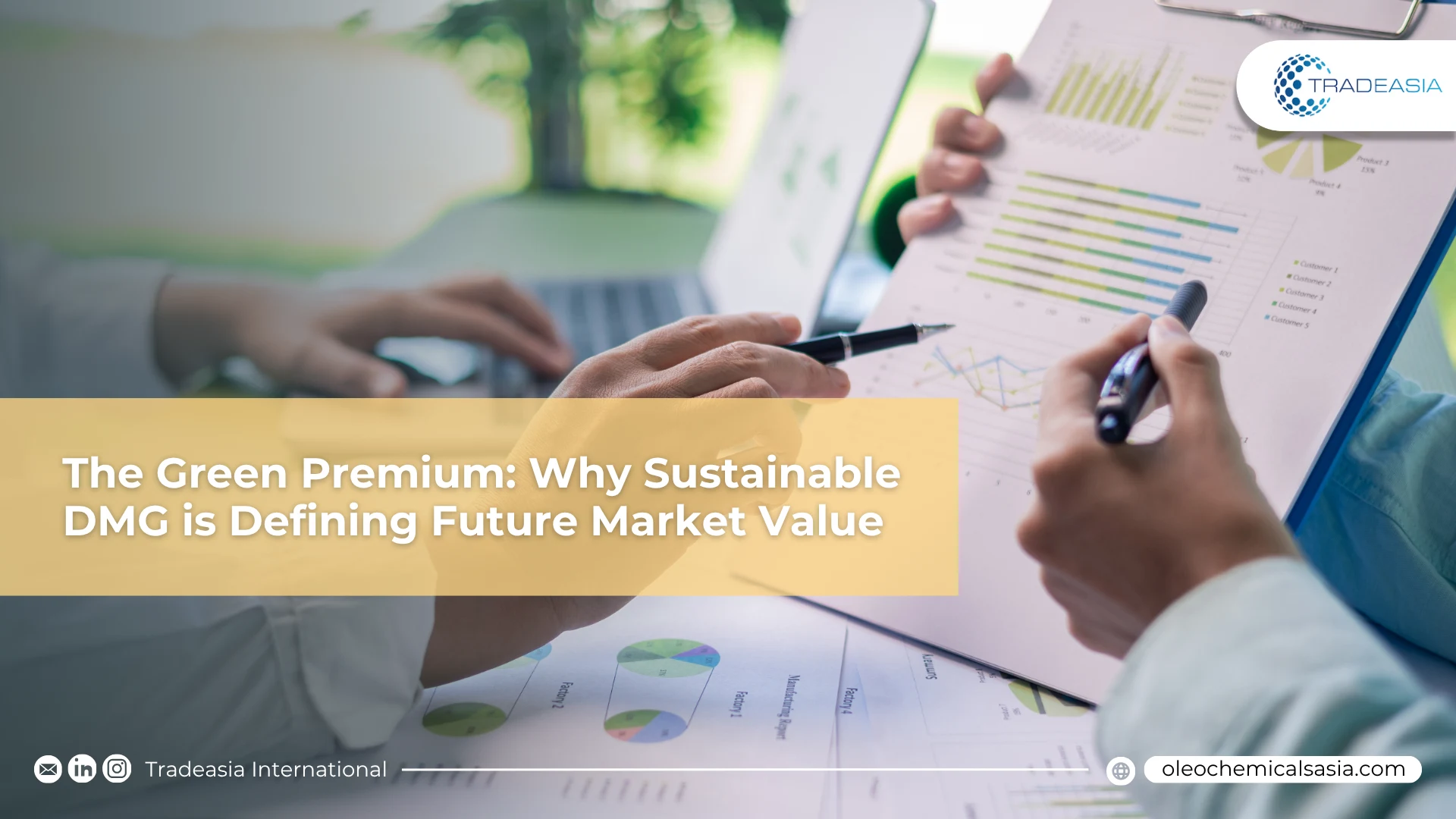The Green Premium: Why Sustainable DMG is Defining Future Market Value

Table of Content
-
The Boardroom Mandate: How Corporate Pledges Reshape Procurement
-
Beyond Compliance: Quantifying the ROI of Sustainability
In the modern economy, sustainability has graduated from a buzzword to a core business metric, and its impact on the Distilled Monoglyceride (DMG) market is undeniable. With over 80% of the global supply derived from palm oil, the demand for verifiable sustainability is reshaping the industry. The data is compelling: products with clear green credentials are now growing 5.6 times faster than their conventional counterparts, creating a distinct "green premium."
This rapid pivot towards sustainability presents both a challenge and an immense opportunity. For companies seeking to align with this global shift, partnering with a supplier like Tradeasia International ensures seamless access to a fully traceable, certified-sustainable oleochemical portfolio, turning compliance into a competitive advantage.
The Boardroom Mandate: How Corporate Pledges Reshape Procurement
The primary driver of this change isn't just consumer sentiment; it's a top-down mandate from the world's largest corporations. Over 70% of leading food and beverage multinationals have publicly pledged to achieve 100% certified sustainable palm oil (CSPO) usage in their supply chains by 2025. This commitment cascades directly to derivatives like DMG, making certification a non-negotiable requirement for entry into premier supply chains. Reflecting this, the adoption of RSPO-certified palm oil has grown by 200% in the last decade, establishing a reliable feedstock for sustainable DMG.
Beyond Compliance: Quantifying the ROI of Sustainability
For forward-thinking businesses, sustainability is a strategic investment with a clear financial return. The market for certified sustainable DMG is projected to grow at a powerful CAGR of 9% through 2040, significantly outpacing the 5.8% growth expected for the conventional market. This growth differential confirms that "sustainability is no longer a cost center, but the most reliable investment in future market access." Companies that prioritize a transparent, certified supply chain are not just meeting today's standards; they are securing higher margins and building the brand resilience needed to thrive in the decades to come.
Sources:
-
Roundtable on Sustainable Palm Oil (RSPO), "Annual Impact Report"
-
Oleochemicals Asia, "Navigating the Future of Sustainable Palm Derivatives"
-
Global Consumer Goods Sustainability Report 2025

Leave a Comment